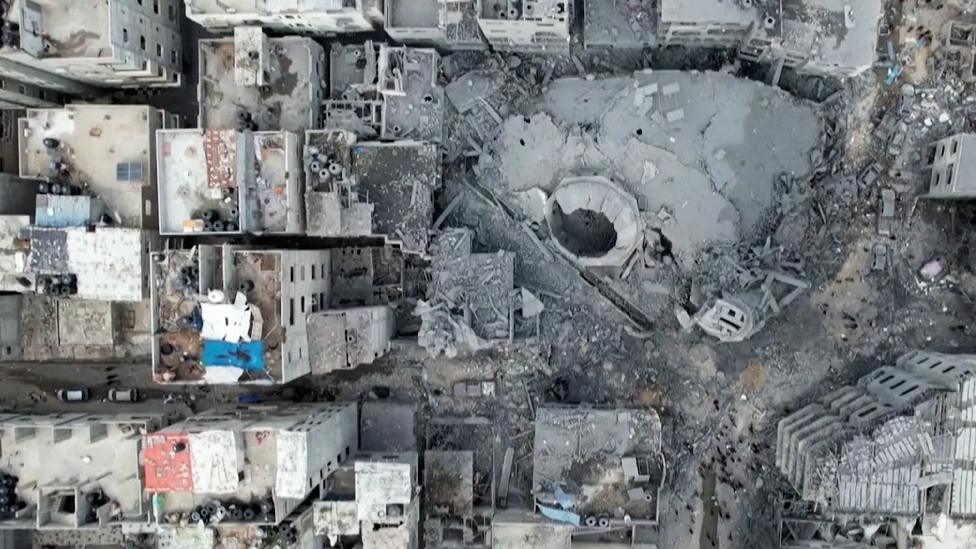Israeli troops push deep into Gaza's southern city of Khan Younis
- Published
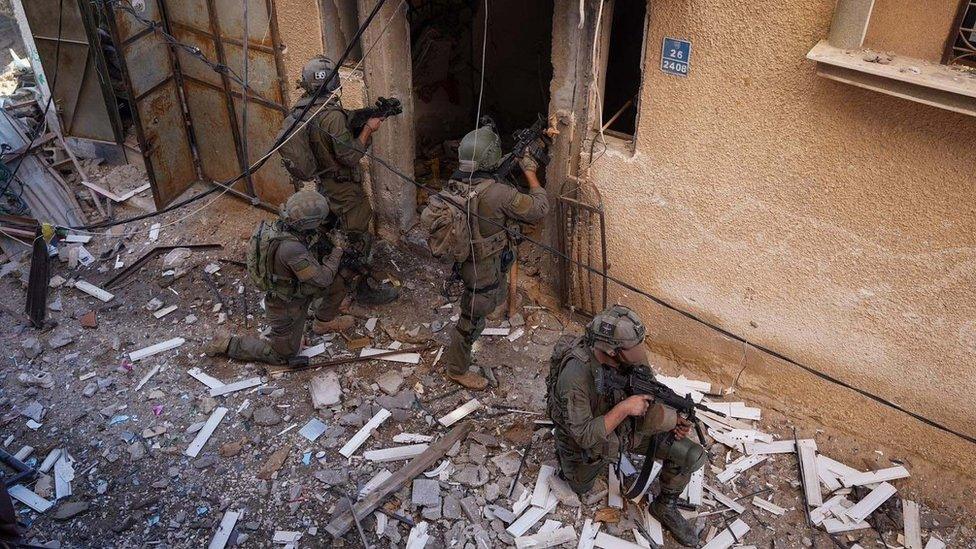
The Israeli military published photographs of Givati Brigade soldiers, who are fighting in southern Khan Younis
Israel says its troops have reached the southernmost area of Khan Younis, as they expand their operations in the Gaza Strip's second biggest city.
The military announced that dozens of Palestinian fighters from Hamas had been killed in "close quarter combat".
Armed groups also reported clashes in the area, while health officials said 172 people had been killed across Gaza.
Meanwhile, Israel's president said he was praying that medicines delivered to the Strip would reach Israeli hostages.
Qatar said on Wednesday night that the supplies had arrived via the border crossing with Egypt, along with a shipment of humanitarian aid for Palestinian civilians, under an agreement it had brokered between Israel and Hamas.
A spokesman for Qatar's foreign ministry told CNN on Thursday, external that there was every likelihood that the medicines had reached the hostages, but that it would be difficult to confirm because of a near-total communication blackout.
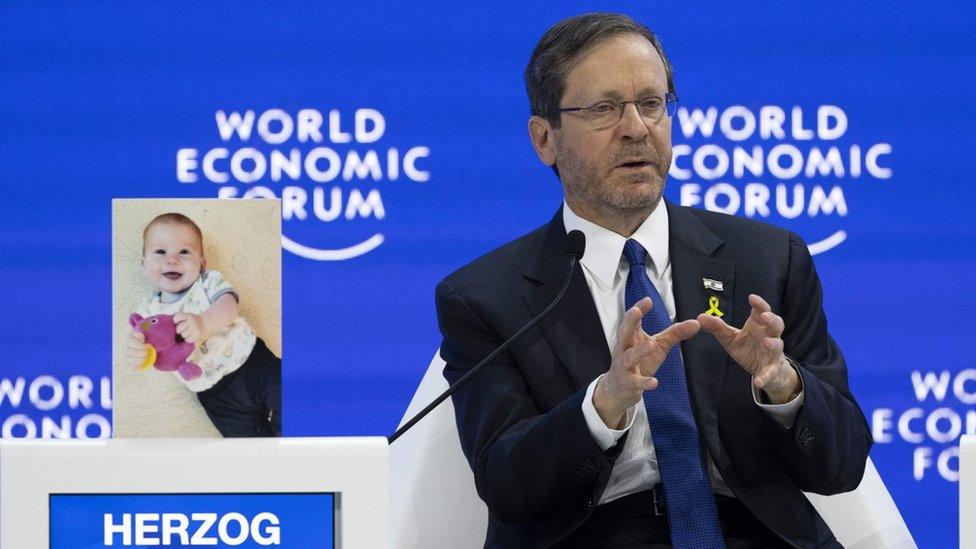
Israeli President Isaac Herzog marked the first birthday of the youngest hostage in Gaza, Kfir Bibas
Majid al-Ansari also said that Palestinian health authorities had been tasked with handing over the medication, rather than a neutral intermediary like the International Committee of the Red Cross (ICRC).
"The security situation is certainly not easy. It would be very difficult to involve the Red Cross or any other organisation at the moment," he added.
The ICRC also stated that the "mechanism that was agreed to does not involve the ICRC playing any part in its implementation".
The medicines are supposed to be delivered to some 45 of the more than 100 Israeli hostages in Gaza, who are reported to be suffering from chronic diseases or in need of other life-saving drugs.
On Thursday, President Isaac Herzog was among the many Israelis who marked the first birthday of the youngest hostage, Kfir Bibas. Hamas has claimed the baby was killed in an Israeli air strike, along with his four-year-old brother Ariel and their mother Shiri in November. without providing evidence.
"His whereabouts are unknown," Mr Herzog said at the World Economic Forum in Davos, sitting next to a photograph of the infant. "I call upon the entire universe to work endlessly to free Kfir and all the hostages."
Hamas gunmen took about 250 people hostage and killed about 1,200 others when they carried out an unprecedented cross-border attack on southern Israel on 7 October, Israeli authorities say.
More than 24,600 people have been killed in Gaza since the Israeli military launched a large-scale air and ground campaign in response, according to the Hamas-run health ministry.
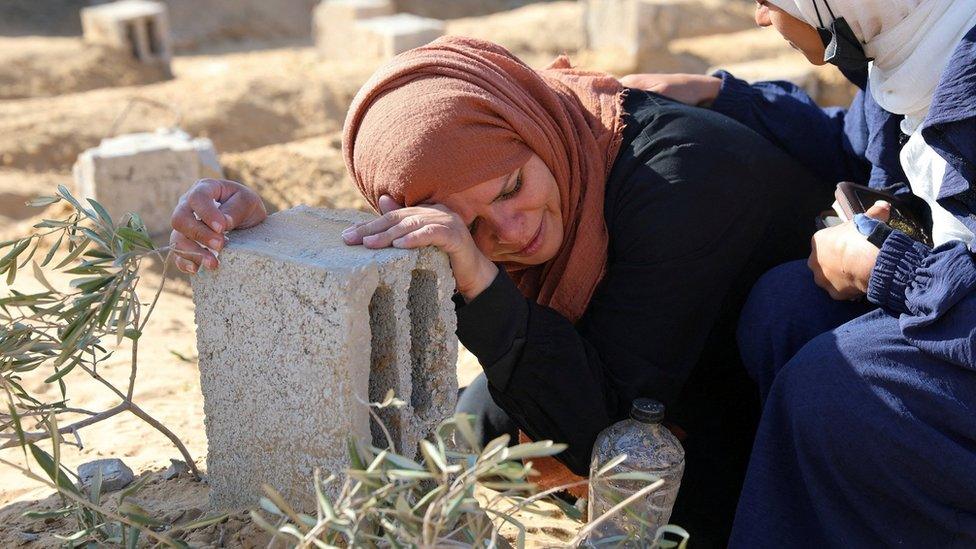
Gaza's health ministry said on Thursday that 172 people were killed across Gaza over the previous 24 hours
The Israel Defense Forces (IDF) said in a statement on Thursday morning that infantry soldiers from the Givati Brigade in Khan Younis were "now fighting in the southernmost area that IDF ground troops have operated in so far".
The troops had "eliminated dozens of terrorists in close-quarters combat and with the assistance of tank fire and air support", and raided the "Martyrs' Outpost" of the Southern Battalion of Hamas's Khan Younis Brigade, it added.
It did not say where the fighting took place, but Hamas's military wing reported that its fighters had fired at Israeli soldiers and shelled a tank and armoured bulldozer in the southern Batn al-Samin area on Wednesday.
Palestinian Islamic Jihad - the second biggest armed group in Gaza - also said there had been fierce clashes in the south of Khan Younis on Thursday.
Meanwhile, civilians have been fleeing the city as the fighting closes in, including many displaced families sheltering at Nasser Hospital in the west of Khan Younis, which is Gaza's largest functioning health facility.
According to a Médecins Sans Frontières (MSF) surgeon, there was panic at the hospital after Israeli forces heavily bombed a nearby area on Tuesday night without issuing an evacuation order.
An Israeli government spokesman could not confirm the attack but accused Hamas fighters of hiding behind civilians and embedding themselves in medical facilities.
In a video recorded during a visit on Tuesday, MSF head of mission Leo Cans warned that the situation at Nasser Hospital was "catastrophic", with "way too many patients for the staff to handle".
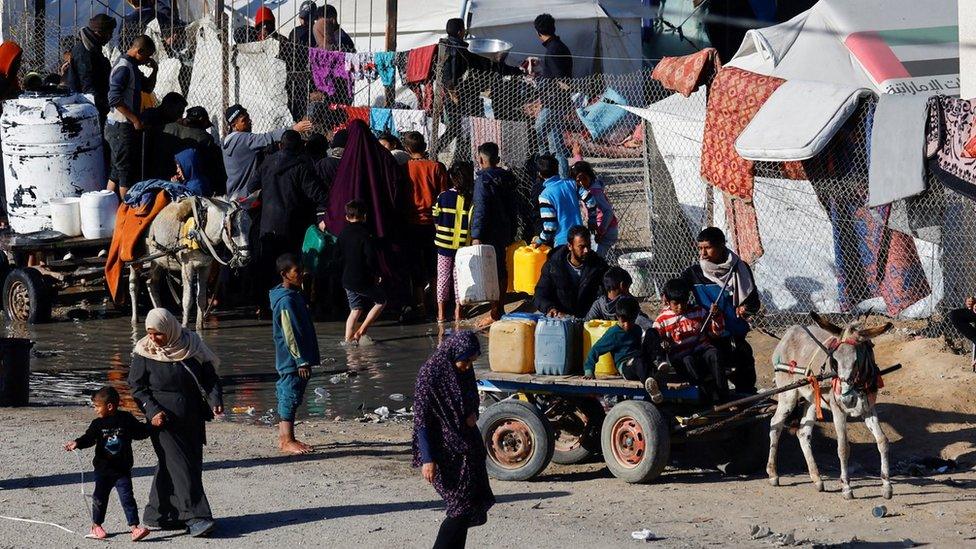
Unicef's deputy director said conditions for the one million displaced people in Gaza were "inhumane"
The deputy director of the UN children's agency (Unicef), Ted Chaiban, also visited the hospital on the same day.
He recalled meeting a 13-year-old boy called Ibrahim whose badly injured hand became infected. "Without medicine, gangrene took hold and he ultimately lost his arm during an amputation without anaesthetic," he said.
On Wednesday night, 16 people, half of them children, were killed in a strike on a house further south in Rafah, local medics and health officials said.
Umm Walid al-Zamli said she had rushed to the local hospital after the attack and found that all of her children were dead.
"They were all so young. The eldest was in second grade," she told AFP news agency. "What did they do wrong?"
Rafah, a small town near the Egyptian border, has been overwhelmed by more than half of the 1.9 million people - nearly 85% of Gaza's population - who the UN estimates have been fled their homes over the past 14 weeks.
"The sheer mass of civilians on the border is hard to fathom and the conditions they live in are inhumane," Mr Chaiban of Unicef warned in a statement on Thursday. "Water is scarce and poor sanitation is inescapable. The cold and rain this week created rivers of waste."
Mr Herzog defended Israel's actions, saying it was left with no choice.
"I'm not shying away from the human tragedy in Gaza. And you want to know something? We care," he said.
"It is painful for us that our neighbours are suffering so much. But how else can we defend ourselves if our enemies decided to entrench themselves in an infrastructure of terror of unbelievable size?"
Correction 13th February: This article wrongly reported that about 1,300 people had been killed following the 7th October attack by Hamas. This was based on counting those who later died from their injuries in addition to the figure of more than 1,200. The article has been amended to now refer to about 1,200 deaths, a figure which includes those deaths and which Israel says is not final.
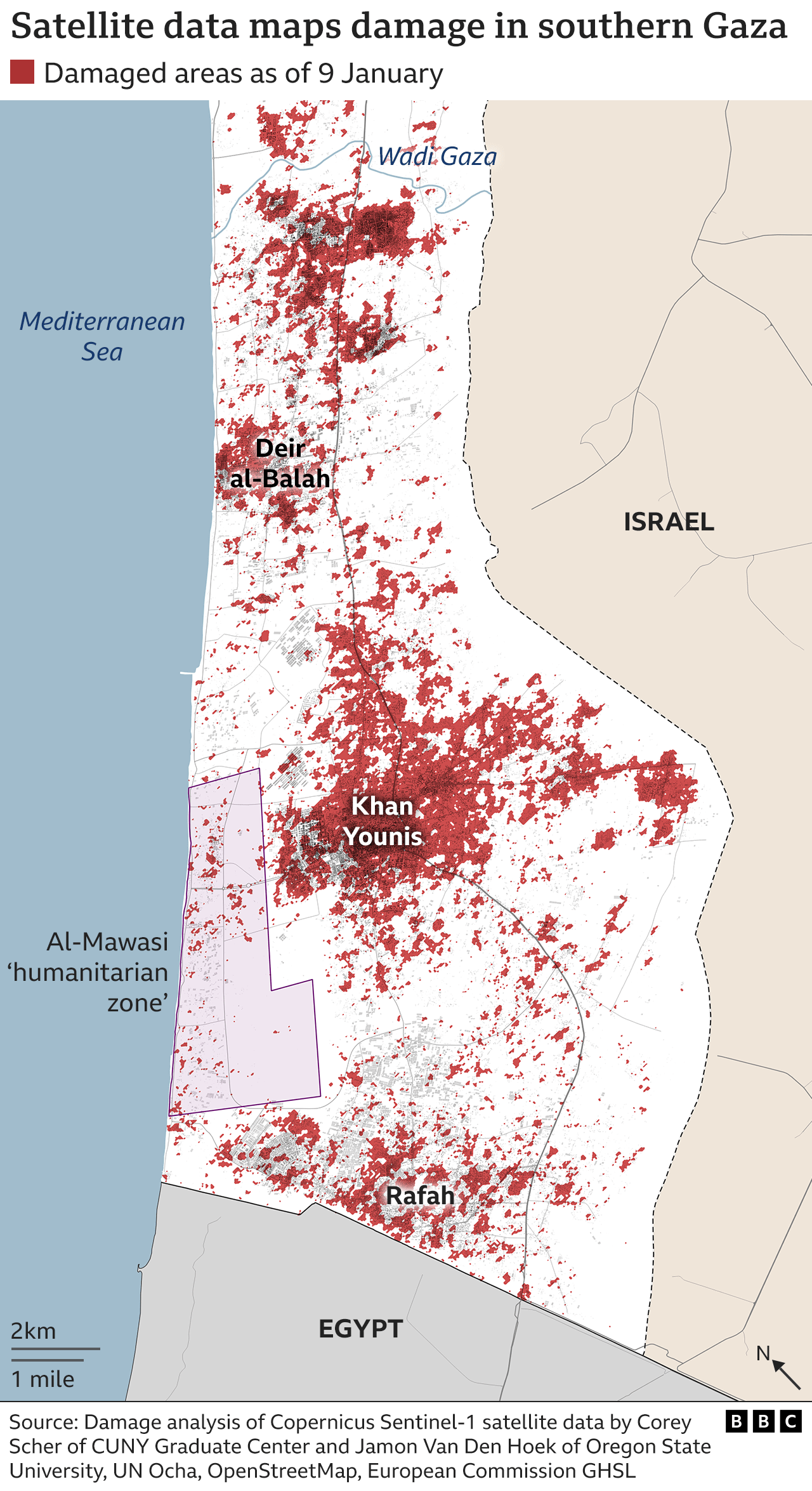
- Published19 January 2024
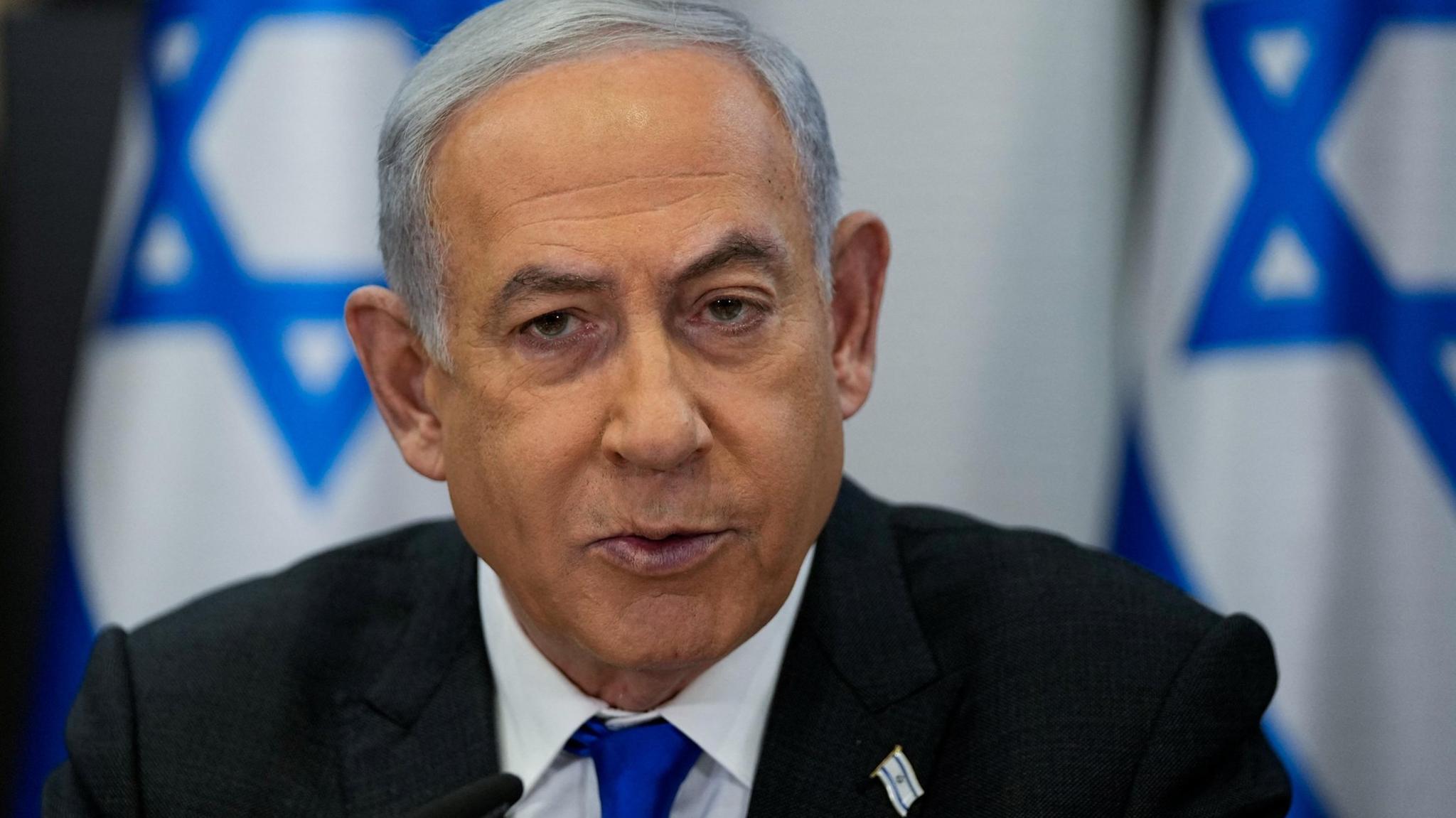
- Published17 January 2024
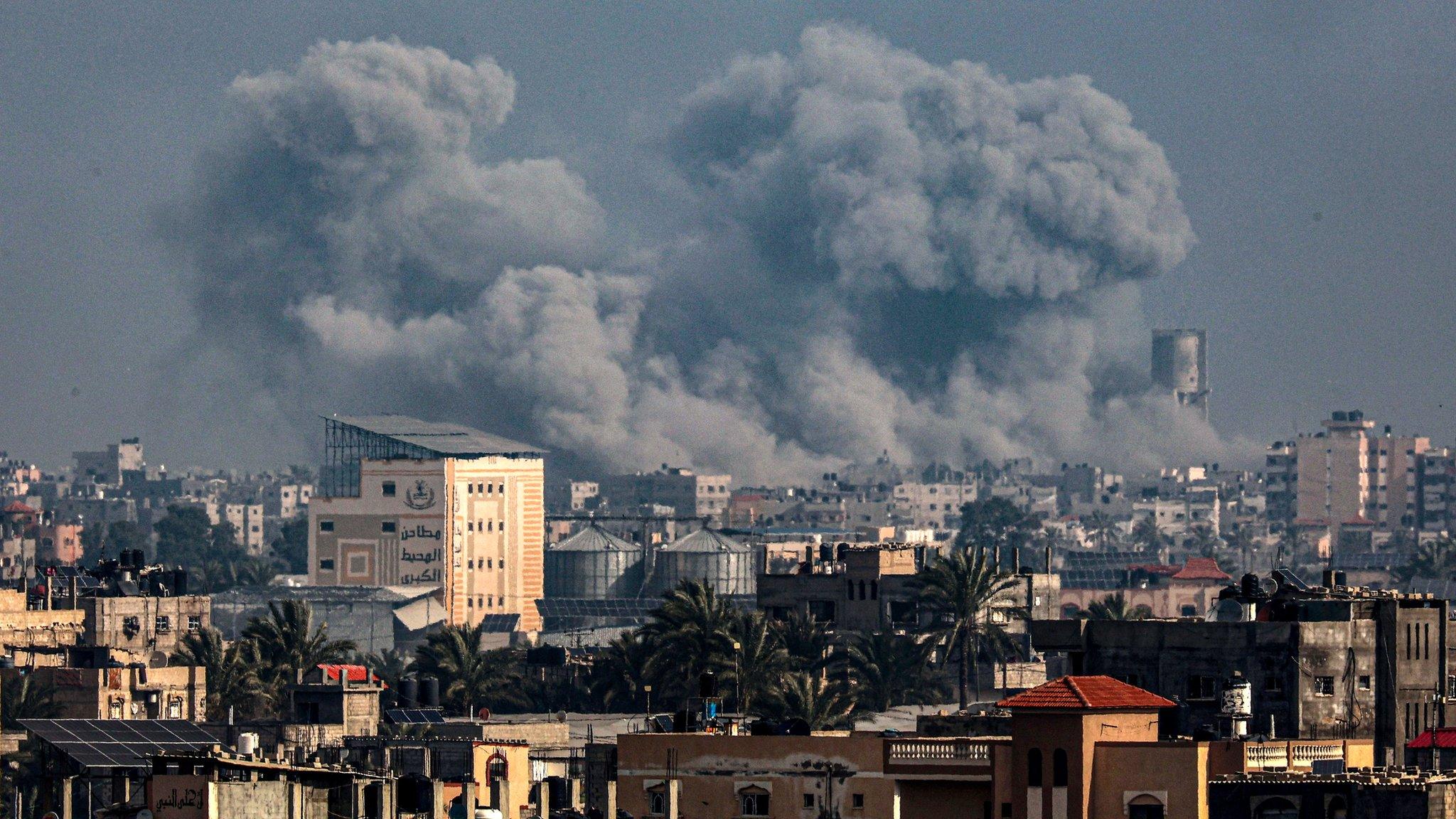
- Published16 January 2024
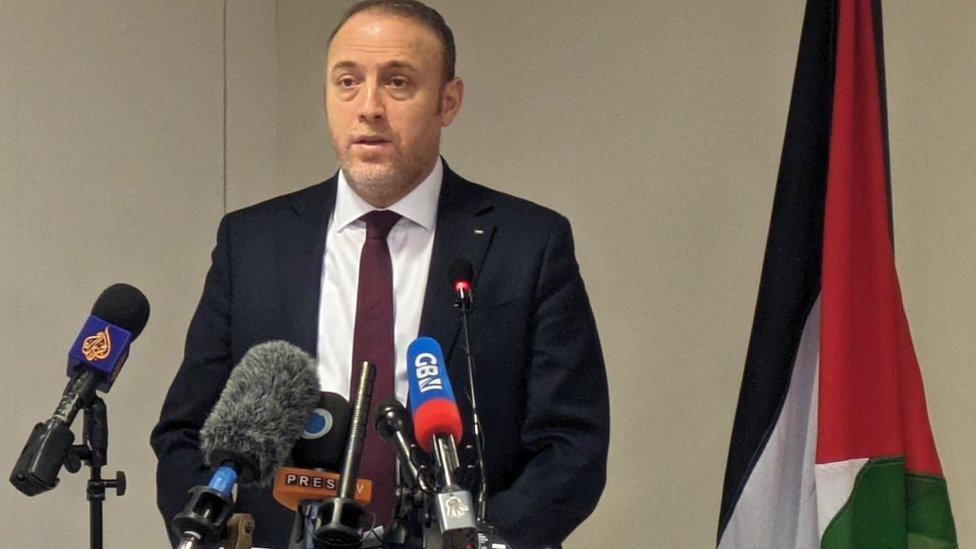
- Published15 January 2024
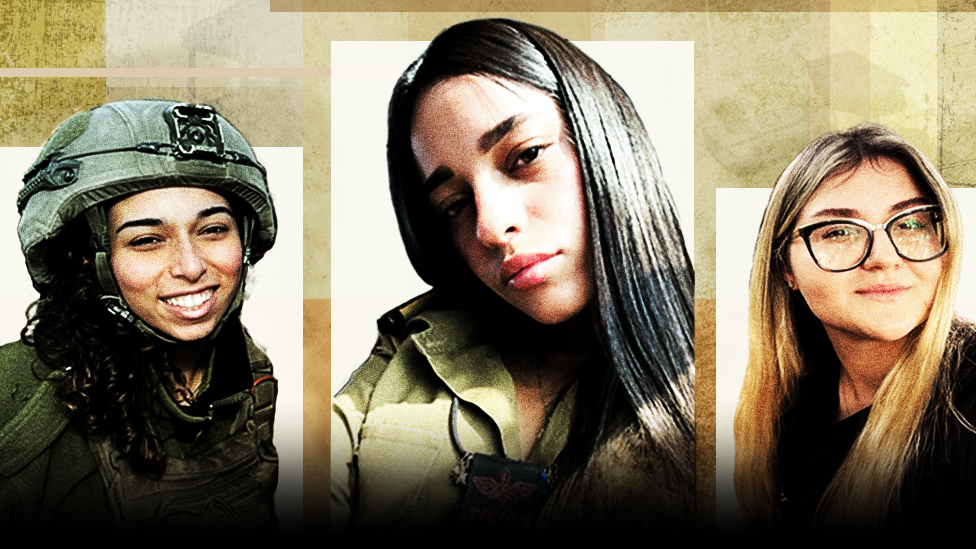
- Published15 January 2024
